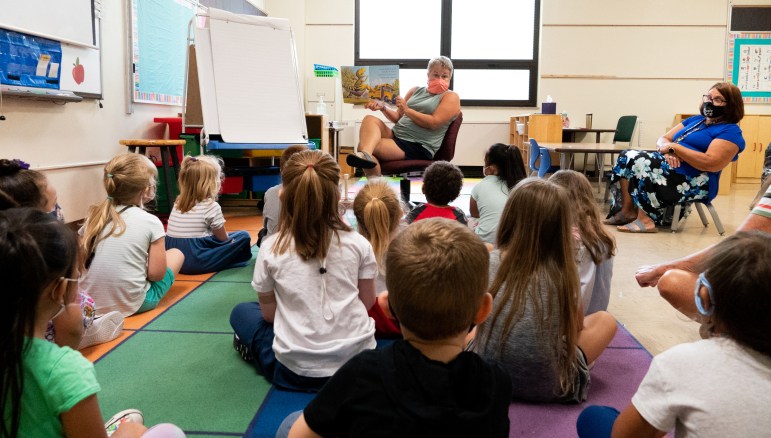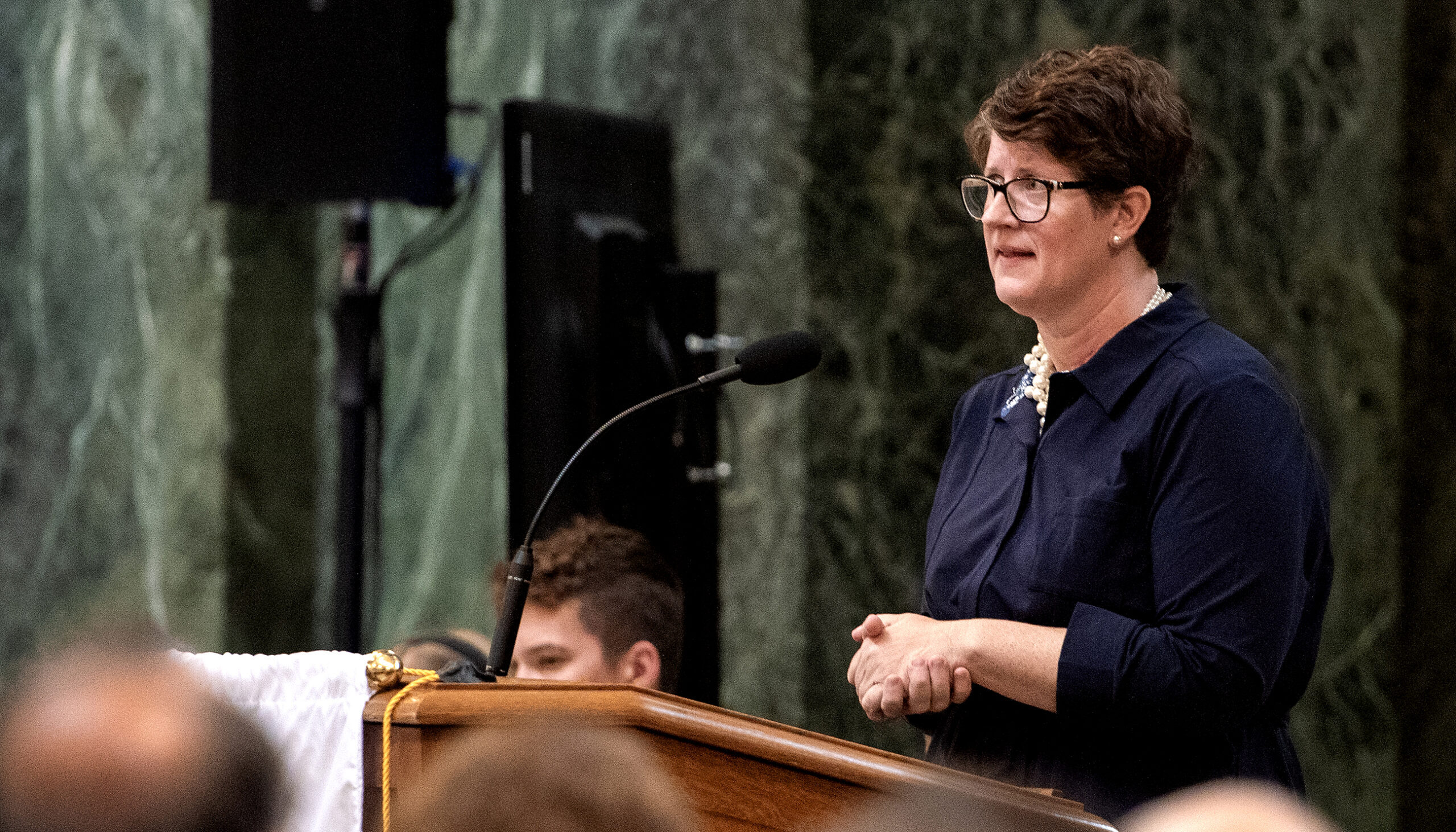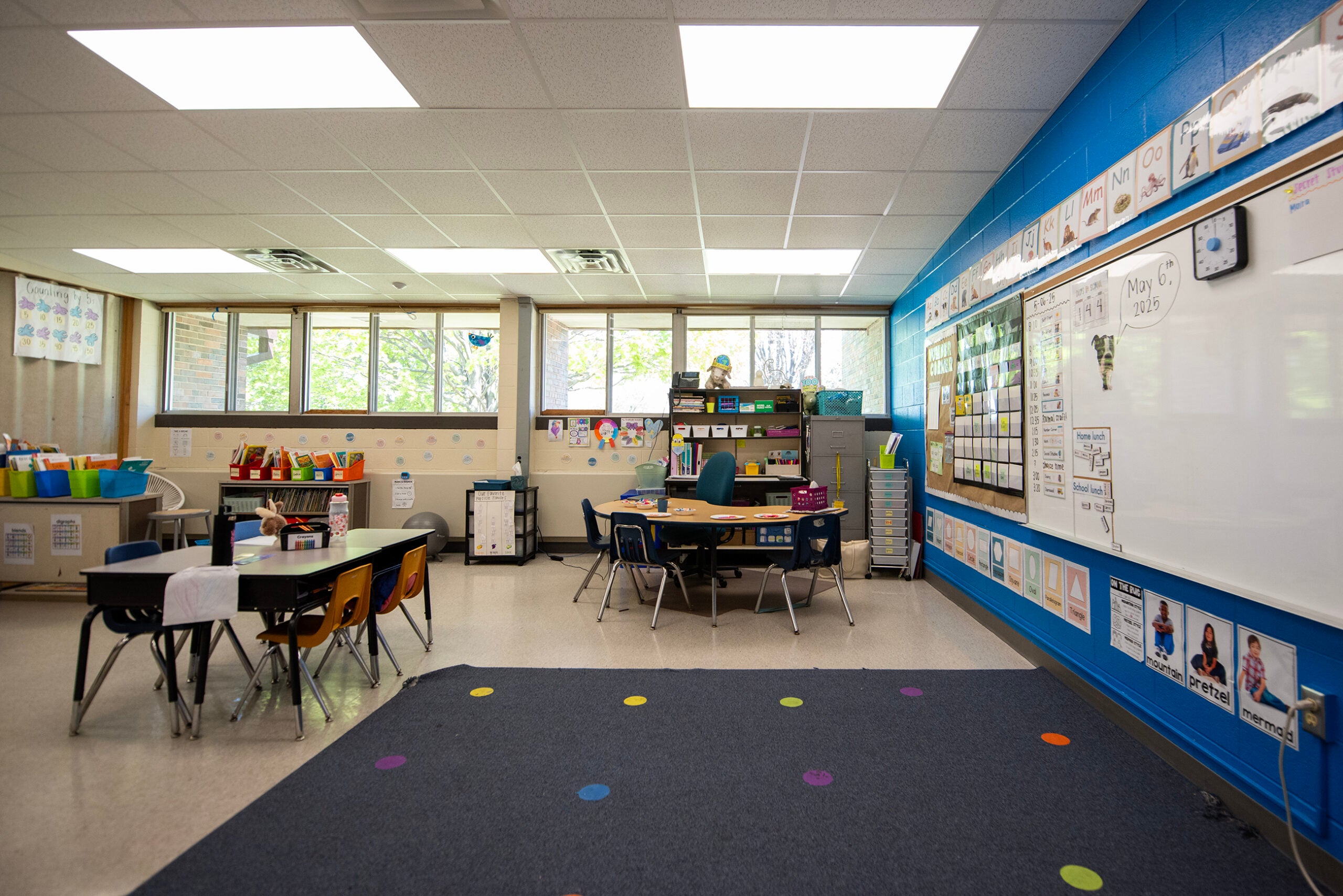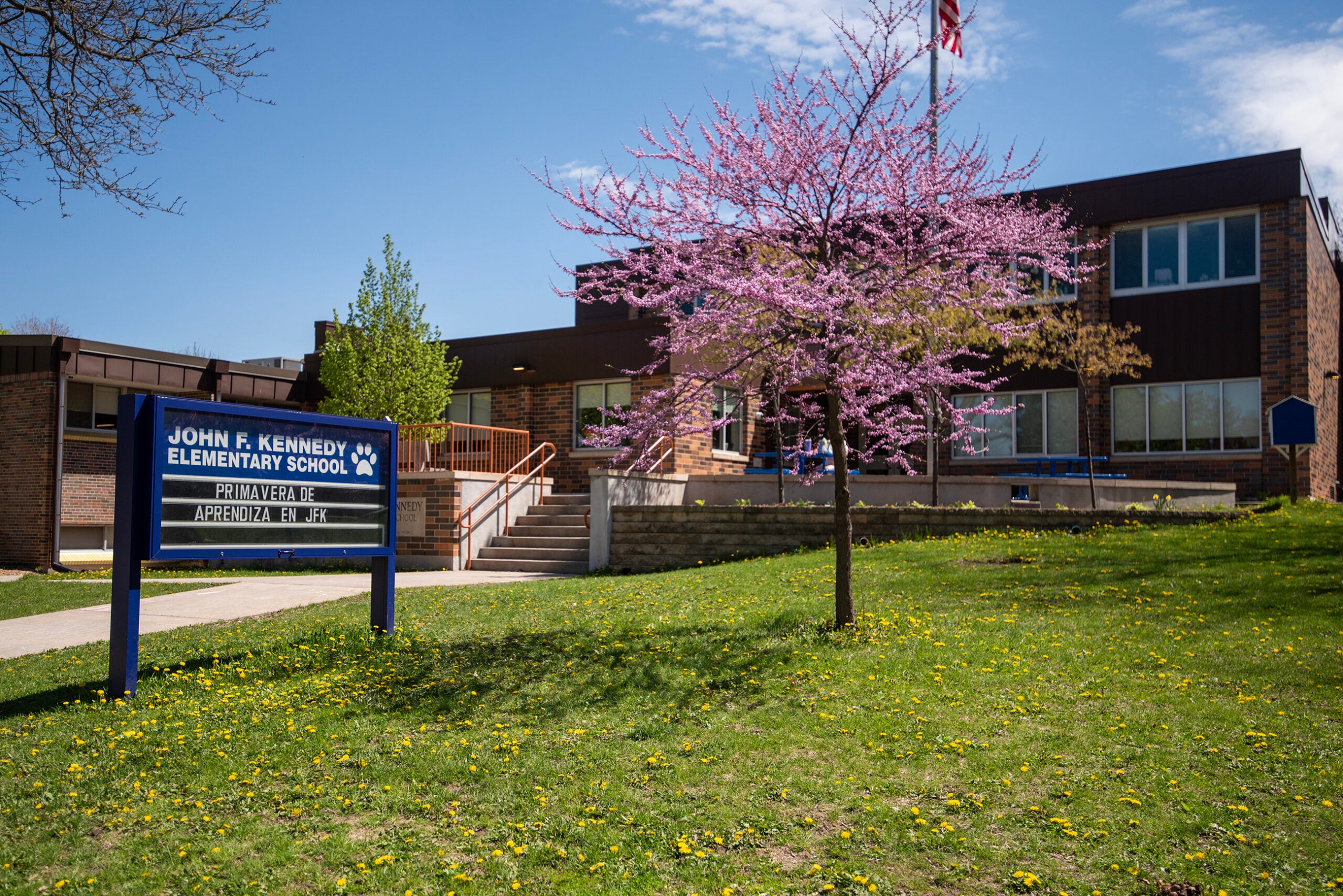State Superintendent Jill Underly called on the Legislature Thursday to double its reimbursement of special education costs to local school districts.
In her fourth State of Education Address at the Capitol, Underly said public school districts are reimbursed for about one-third of the cost of special education services.
“This is not nearly enough,” she said. “And it means many districts continue to struggle to afford to provide services and retain staff.”
News with a little more humanity
WPR’s “Wisconsin Today” newsletter keeps you connected to the state you love without feeling overwhelmed. No paywall. No agenda. No corporate filter.
Underly called on the state to fund at least 60 percent of special education costs. The current reimbursement rate is 31.5 percent.
“As a state, we need to help districts afford the cost of special education services,” she said. “These services are legally mandated. It’s the right thing to do, and all our students benefit when special education needs are met.”
Special education funding has been a years-long debate in Wisconsin and nationally.
When the Individuals with Disabilities Education Act was passed in 1975, it authorized federal funding for up to 40 percent of what it costs to provide special education services for students with disabilities. But the federal government has never come close to funding at that level, hovering closer to 15 percent.
This gap between available state and federal funding and excess special education costs places a considerable burden on local school districts, which end up turning to other revenue sources, including property taxes, according to a 2019 Wisconsin Policy Forum report on the subject.
In the 2022-23 school year, Wisconsin’s 421 public school districts reported more than $2 billion in special education costs. Approximately $1.2 billion of those costs were not reimbursed, according to Department of Public Instruction data.

In 2024, 147 school districts placed operating referendum questions on local ballots, with a combined annual cost of $763 million. Those same districts faced a total of $515.3 million in unreimbursed special education costs in 2022-23, said State Sen. Chris Larson, D-Milwaukee, on Monday during a press conference.
Larson says he wants the state to reimburse school districts 90 percent for special education.
“Republican legislators love to talk about tax cuts, but what they don’t say is that their K-12 education budgets have caused districts to go to referendum at a record pace, forcing Wisconsinites to choose between raising their own property taxes and short changing their kids’ futures,” Larson said on Monday. “Fortunately for our kids, the vast majority of these referendums have passed, but there is a limit to what our communities can bear.”
Underly emphasizes importance of belonging, mental health
Underly said DPI’s next biennial budget request will again ask the state to fully fund mental health aid for students.
Gov. Tony Evers’ most recent budget included more than $270 million to expand mental health services in schools. But Republicans cut the funding. In his veto message, Evers restored about $30 million.
“When we talk about supporting our students, we can all agree that every kid deserves to have adults who care for them, believe in them, who see them, and who listen,” Underly said Thursday. “Now, that may be a parent or a caregiver. But for many kids, it may only be a trusted adult at school.”
Student surveys continue to show the importance of ensuring all youth feel like they belong at their school.
Underly said the value of belonging is a powerful litmus test.
“It’s not lip service when I say that we must make sure that every Wisconsin child feels like they belong and has the support they need to thrive in our public schools,” she said. “Belonging is the bedrock of our schools, our communities, our workplaces and our democracy. We are at our best when everyone feels like they belong, and that our collective future belongs to us.”
Underly also called on the Legislature to release the $49.7 million allocated to support the literacy bill passed last year known as Act 20.
The funding has been the subject of lawsuits and is currently in limbo. The Joint Committee on Finance did not include the topic on their Thursday agenda.
“You say you care about literacy when the spotlight is on you, but you continue to obstruct the release of this critical funding,” Underly said. “People across the state see that inconsistency. Let’s get that funding released so that we can fulfill the promises we all made to help our kids read.”
Editor’s note: this story has been updated to reflect that funding to support the literacy bill has not been allocated but not released.
Wisconsin Public Radio, © Copyright 2025, Board of Regents of the University of Wisconsin System and Wisconsin Educational Communications Board.





